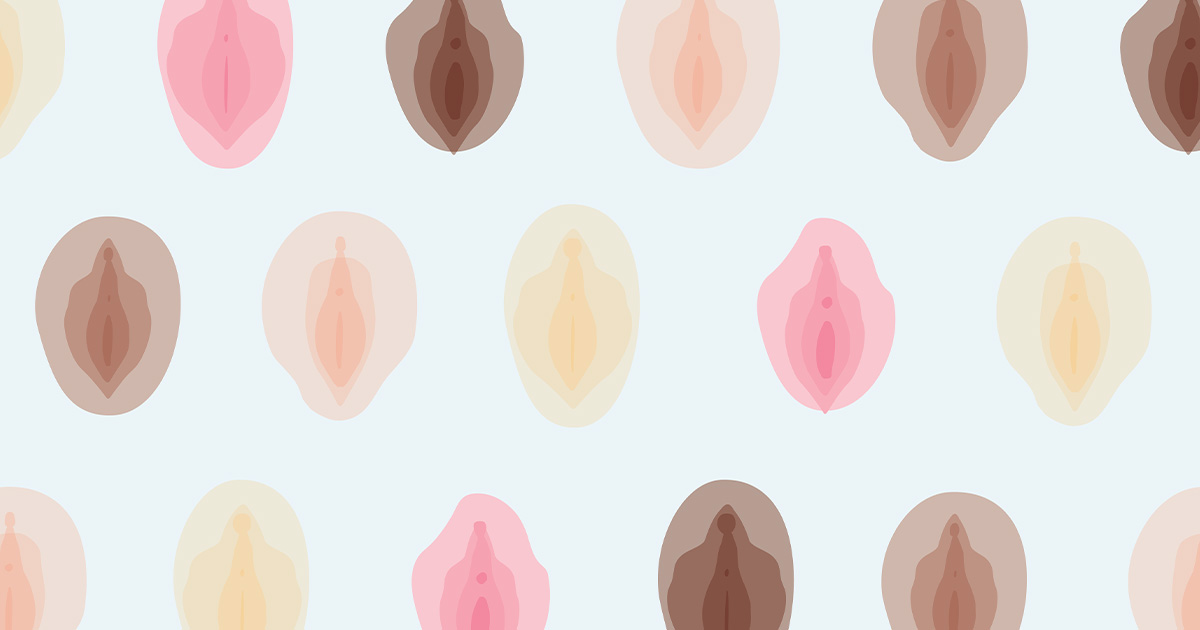
What's Up, Down There
How To Care For “Down There” – OB/GYN Approved Vaginal Hygiene Tips
There’s a lot of talk about what products or lifestyle hacks are the best for proper vaginal hygiene. In the latest edition of our “What’s Up, Down There,” series we’re debunking common myths and offering OB/GYN-backed tips on how to keep your vagina healthy and clean. Spoiler alert: caring for down there is a lot simpler than you may think!
Debunking Common Myths
Vaginal hygiene was once a taboo topic, but now more than ever there’s been an uptick of viral videos on social media offering advice on how to care for down there. It’s important to remember that many of these videos aren’t coming from medical experts, and therefore may be spreading misinformation.
Before we dig in, here’s a quick note on language, as using the right terms is important for education and better understanding your body. There is a difference between the vagina and the vulva. Your vagina is the canal inside your body that connects your uterus to the outside of your body. Your vulva is the name for the genitals on the outside of your body, including clitoris, the labia majora and labia minora, and the vaginal opening.
Alright, now let’s debunk those myths.
Myth #1: You need to use scented soaps on your vulva or vagina.
When you walk down the drugstore aisle, it seems there’s more products than ever before promoting “feminine hygiene.” With pretty pink packaging, intoxicating floral scents, and ads claiming you need these products to get rid of unwanted odor, it can be tempting to think these products are necessary. Not only are these products unnecessary, but the truth is they can actually do more harm than good. The skin down there is sensitive and products like these can cause irritation and can disrupt your normal vaginal pH.
And always avoid any type of douching product inside the vagina. As you may have heard us say before, your vagina is a self-cleaning organ, so you don’t need to do much to keep it clean. Non-fragranced soap and water is best. Overdoing it can disrupt the good bacteria that helps your vagina stay clean and healthy and can actually lead to issues like yeast infections.
Myth #2: You need to shave or wax your pubic hair.
Shaving or waxing your pubic hair is a personal choice. There is no evidence that shaving your pubic hair makes you more or less likely to get infections.
If you do choose to remove hair down there, it’s important to keep a few simple tips in mind. If you plan to wax, it’s best to avoid getting waxed the days leading up to your period as your skin is more sensitive, and doing so at this time could be more painful.
If you opt for shaving, make sure you’re using a new, clean razor to get the closet shave possible. Always shave in the direction of hair growth, never against the grain as this could cause hairs to break off and grow inward.
Myth #3: Vaginal discharge is a sign of an infection.
Having vaginal discharge is not only normal, but it’s healthy, too! The vagina typically secretes a white or clear-ish fluid every day, known as discharge. Discharge is a mix of cells, mucus, and fluids from inside the vagina and cervix. Vaginal discharge plays several important roles in a woman’s health. It aids in cleaning, providing lubrication and moisturization, and helping to prevent vaginal infections.
Discharge can come in many colors, consistency, and odors. The amount of discharge you have depends on different factors from hormone levels around your menstrual cycle to sexual activity. A “normal” discharge will usually be white or clear-ish in color. Though what’s normal can vary from woman to woman. It’s important to keep track of your typical color and smell, so you can notice if something is off. For more on how to decode if something is off, visit our blog post here.
Vaginal Hygiene Checklist
Keeping your vulva and vagina clean isn’t complicated. In fact, you’re probably already practicing many of the healthy habits that are important for vaginal health. Here’s a round-up of our top OB/GYN approved tips.
- Wash the outside of your vagina with warm water and a mild soap. You can use a washcloth, but be gentle. Don’t scrub too hard, as this can irritate your skin.
- Go to the bathroom after sex. Going to the bathroom to pee can help flush out any bacteria that may have entered your urethra during sex.
- Change your underwear daily. This helps to keep your vulva dry and free of bacteria.
- Wear loose-fitting, breathable clothing. This helps to keep your vulva cool and dry.
- Stay hydrated. Drinking plenty of fluids helps to keep your urine dilute and flush out bacteria.
- Eat a healthy diet. Eating a diet that is rich in fruits, vegetables, and whole grains can help to keep your immune system strong and fight off infection.
- Get regular exercise. Exercise helps to improve circulation and reduce stress, both of which can contribute to vaginal health problems.
Caring for “down there” doesn’t have to involve fancy products or treatments. By following the advice above, knowing your body, and regularly checking-in with your Axia Women’s Health provider, you can achieve optimum vulvovaginal health.
Similar Articles

February 5, 2026

November 10, 2025

May 7, 2025
















